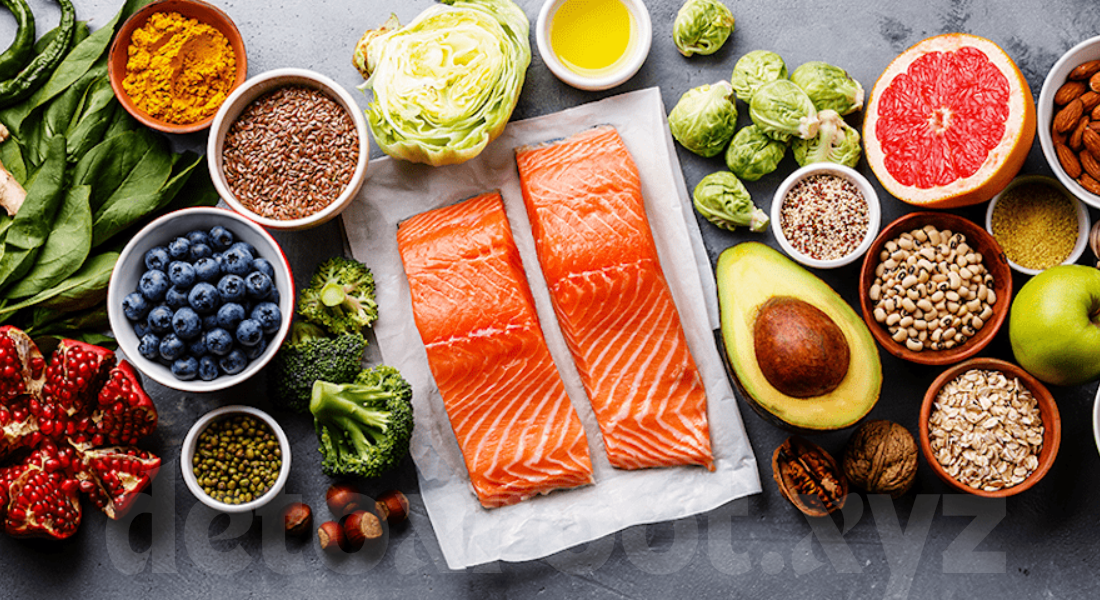The Importance of Healthy Eating
In today’s fast-paced world, maintaining a healthy lifestyle can sometimes seem challenging. However, incorporating healthy eating habits into your daily routine can make a huge difference in how you feel, look, and function throughout the day. Whether you’re looking to lose weight, boost energy, or simply feel better, understanding the basics of healthy eating is the first step towards a more vibrant and fulfilling life. In this article, we’ll explore essential
healthy eating tips that can help you build a balanced diet that supports long-term health and well-being.
Healthy eating is a lifestyle choice, not a short-term goal. It’s about developing habits that nourish your body, improve your mood, and enhance your overall quality of life. Good nutrition is an investment in your health and is the foundation of feeling energized and strong. By adopting small, manageable changes to your diet, you can experience improvements not only in physical health but also in mental clarity and emotional resilience.
Why Healthy Eating Matters
Eating a nutritious diet is one of the most important factors for maintaining overall health. A balanced diet provides your body with the right nutrients to perform its essential functions, including energy production, immune support, and muscle maintenance. Additionally, healthy eating habits can prevent chronic diseases like heart disease, diabetes, and certain types of cancer, improving your quality of life. By focusing on whole, nutrient-dense foods, you can not only enhance your physical health but also positively impact your mental and emotional well-being.
Our bodies need a variety of nutrients to thrive. Carbohydrates, proteins, fats, vitamins, and minerals all play unique and important roles in maintaining energy levels, cognitive function, and bodily systems. Without adequate nutrition, the body can struggle to repair and maintain tissues, fight off infections, and regulate hormonal functions. A poor diet can contribute to fatigue, low immunity, and mood swings, which can diminish your ability to fully engage in daily activities and enjoy life.
Healthy eating is also crucial for managing weight. When we eat too much processed food, loaded with unhealthy fats and sugars, we’re at risk of gaining excess weight, which can lead to numerous health problems like high blood pressure, diabetes, and joint issues. By eating a well-rounded diet, you provide your body with what it needs to function properly, keeping your metabolism in balance and preventing weight gain.
Healthy Eating Tips for a Balanced Diet
When it comes to adopting healthy eating habits, it’s important to remember that there is no “one-size-fits-all” approach. The key is to make gradual changes that work for your individual lifestyle. Below are some practical
healthy eating tips that can help you achieve a more balanced diet:
1. Embrace Whole Foods
One of the most fundamental tips for healthy eating is to focus on whole, unprocessed foods. Whole foods like fruits, vegetables, whole grains, lean proteins, and healthy fats are packed with essential nutrients that your body needs to thrive. By prioritizing these nutrient-dense foods, you can ensure you’re getting the vitamins, minerals, and antioxidants your body requires.
Whole foods are unrefined and minimally processed, meaning they retain more of their natural nutrients. For example, instead of choosing white bread or pasta, opt for whole grain versions like whole wheat bread and brown rice. These alternatives provide more fiber, which is important for digestive health and helps to keep you feeling full longer. Fruits and vegetables, particularly leafy greens like spinach and kale, provide a wide variety of essential vitamins and minerals, including vitamin A, C, and folate, which help protect your immune system.

2. Prioritize a Variety of Nutrients
A key principle of healthy eating is variety. Consuming a wide range of foods from different food groups ensures that you get a balanced mix of nutrients. For instance, fruits and vegetables provide essential vitamins, while whole grains offer fiber and complex carbohydrates for sustained energy. Additionally, lean proteins such as fish, poultry, and plant-based options like beans and legumes offer amino acids crucial for muscle repair and growth. Incorporating healthy fats from sources like avocados, nuts, and olive oil also supports brain function and heart health.
When planning your meals, try to include a rainbow of colors on your plate. Different colors indicate different types of nutrients. For example, red foods like tomatoes and strawberries are high in antioxidants like lycopene, which helps protect against certain diseases. Green foods such as broccoli and cucumbers are loaded with vitamins and minerals that support bone health. The more varied your plate, the more likely you are to get all the essential nutrients your body needs.
3. Practice Portion Control
Portion control is essential for maintaining a healthy diet and avoiding overeating. It can be easy to consume excess calories, especially when eating out or indulging in larger portions. Using smaller plates, measuring food portions, and paying attention to hunger cues can help you stay mindful of your intake. Additionally, eating slowly and savoring your meals allows your body time to signal when it’s full, reducing the likelihood of overeating.
Learning what constitutes a healthy portion size can help you avoid both under and over-eating. For instance, a serving of protein should be about the size of your palm, a serving of vegetables should fill half your plate, and carbohydrates should take up about one-quarter of the plate. Keeping these visual cues in mind will help you strike a balance between satisfying hunger and maintaining portion control.
4. Stay Hydrated
Water is often overlooked in many healthy eating plans, but staying hydrated is crucial for optimal health. Drinking enough water throughout the day supports digestion, boosts energy, and helps regulate body temperature. Aim to drink at least 8 cups (64 ounces) of water daily, or more if you’re physically active or in a hot climate. If you’re finding plain water too boring, try infusing it with slices of fruit or herbs for added flavor.
Hydration is also key for maintaining healthy skin. When you’re well-hydrated, your skin retains its elasticity, making it look plump and radiant. Conversely, dehydration can lead to dry, flaky skin and an increase in fine lines and wrinkles. Water also helps detoxify the body by flushing out waste and toxins, further promoting glowing skin.
Healthy Eating Tips for Meal Planning
Meal planning is a powerful strategy for achieving your healthy eating goals. By planning ahead, you can ensure that you have balanced meals ready to go, making it easier to stick to your healthy eating routine. Below are some
healthy eating tips specifically focused on meal planning:
5. Plan Your Meals Ahead of Time
Taking the time to plan your meals each week can save you time, stress, and unnecessary temptations. Start by choosing simple, nutritious recipes that align with your health goals. Focus on meals that incorporate a variety of food groups, such as a salad with lean protein (chicken or tofu), whole grains (quinoa or brown rice), and healthy fats (olive oil or avocado). By preparing meals in advance, you can also avoid last-minute fast food options that may be less nutritious.
Meal planning doesn’t have to be overwhelming or time-consuming. Begin by planning just a few days at a time, then gradually increase your meal prep to cover the whole week. You can write down a shopping list based on your meal plan to ensure you have all the ingredients you need. This will help you avoid impulse buys and keep you on track with your healthy eating goals.

6. Batch Cook and Prep
Batch cooking and meal prepping are excellent techniques for staying on track with your healthy eating plan. Set aside a few hours each week to prepare large portions of healthy meals that can be stored in the fridge or freezer. This way, you always have wholesome meals ready when you’re short on time or energy. Simple options include roasted vegetables, grilled chicken, or grain bowls with various toppings. Pre-portioning meals into containers can also help with portion control.
Batch cooking allows you to make nutritious meals in bulk, reducing the temptation to order takeout or opt for unhealthy, quick fixes. It also saves time and effort during the week, as you’ll have pre-made meals waiting for you when hunger strikes. Consider using a slow cooker or instant pot to prepare large quantities of stews, soups, and casseroles that can be easily reheated.
7. Keep Healthy Snacks on Hand
Snacking is often an overlooked aspect of healthy eating, but choosing the right snacks can support your energy levels and prevent unhealthy cravings. Instead of reaching for chips or candy, opt for nutrient-rich snacks like fresh fruit, raw vegetables with hummus, nuts, or yogurt. Preparing these snacks in advance ensures you have healthy options readily available when hunger strikes, keeping you from resorting to processed, sugary choices.
Healthy snacks can also serve as mini-meals that provide you with sustained energy throughout the day. For instance, a handful of almonds with a piece of fruit is a great combination of protein, fiber, and healthy fats. Greek yogurt with berries provides a dose of protein and antioxidants, while a hard-boiled egg gives you a quick hit of protein and vitamins.
Healthy Eating Tips for Special Diets
While the general principles of healthy eating apply to everyone, certain individuals may need to follow a specific diet to meet their health needs. Here are a few
healthy eating tips for those on special diets:
8. Tips for Vegetarians and Vegans
If you follow a vegetarian or vegan diet, it’s important to pay extra attention to ensure you’re getting enough protein, iron, calcium, and vitamin B12. Excellent plant-based sources of protein include beans, lentils, tofu, quinoa, and edamame. For calcium, incorporate fortified plant milk, leafy greens, and almonds into your meals. Additionally, consider a vitamin B12 supplement, as it’s primarily found in animal products. With careful planning, a plant-based diet can be both nutritious and satisfying.
Plant-based diets are associated with numerous health benefits, including a lower risk of chronic diseases like heart disease and cancer. However, they also require thoughtful planning to ensure you get all the essential nutrients. Eating a wide variety of whole foods will help you cover all your nutritional bases.
9. Healthy Eating Tips for Weight Loss
For those seeking weight loss, healthy eating plays a pivotal role. Focus on nutrient-dense, lower-calorie foods such as fruits, vegetables, lean proteins, and whole grains. Avoid processed foods, refined sugars, and trans fats, which can contribute to weight gain and negatively affect your metabolism. Incorporating regular physical activity alongside a balanced diet can further enhance weight loss efforts.
When trying to lose weight, it’s important to remember that extreme dieting is not sustainable in the long term. Instead, aim for gradual changes that you can maintain, such as cutting back on high-calorie, high-fat foods and replacing them with more vegetables, fruits, and whole grains. Healthy eating should be about improving your relationship with food and making better choices without feeling deprived.
10. Managing Food Sensitivities
If you have food sensitivities or allergies, it’s crucial to read labels and be mindful of what you’re eating. Common allergens like gluten, dairy, nuts, and soy can be found in many packaged foods, so always check ingredient lists before purchasing. For gluten-free eating, consider naturally gluten-free grains like rice, quinoa, and corn. If you’re lactose intolerant, opt for plant-based milk and dairy substitutes. Planning your meals around your sensitivities will ensure you maintain a healthy and balanced diet without feeling restricted.

People with food sensitivities should focus on whole, unprocessed foods, which are often naturally free of allergens. Planning meals at home allows for more control over ingredients and reduces the risk of exposure to hidden allergens.
Healthy Eating Tips for Long-Term Success
While it’s important to implement healthy eating strategies, achieving long-term success requires consistency, patience, and flexibility. Here are some final
healthy eating tips to help you stay on track over time:
11. Develop a Positive Relationship with Food
It’s easy to fall into the trap of labeling foods as “good” or “bad,” but this mentality can create unnecessary stress around eating. Instead, aim to develop a balanced relationship with food by allowing yourself to enjoy occasional indulgences without guilt. Healthy eating should be about nourishing your body, not depriving yourself of the foods you love. By taking a mindful approach, you can avoid unhealthy patterns like binge eating or restrictive dieting.
Eating is an enjoyable and social activity, and it should never feel like a punishment. Aim to strike a balance where you enjoy both nutritious meals and the occasional treat. This balanced approach will help you maintain your healthy habits in the long run.
12. Get Support and Stay Accountable
Sometimes, having a support system can make all the difference in sticking to your healthy eating goals. Share your progress with friends, family, or even a nutrition coach to stay accountable. You can also join online communities or support groups that focus on healthy eating. By engaging with others, you can gain inspiration, motivation, and practical tips to keep you on track.
Accountability can help you stay motivated, especially on days when your willpower is tested. When you have someone to share your victories with, you’ll feel encouraged to keep going. Finding a community that shares your health goals can provide the additional support you need to make your healthy eating plan sustainable.
Conclusion: Start Your Healthy Eating Journey Today
Adopting healthy eating habits doesn’t need to be complicated or overwhelming. By following the
healthy eating tips outlined above, you can create a balanced, sustainable diet that supports your health and well-being. Remember, the key is consistency, variety, and mindfulness—small changes over time can lead to lasting results. Start incorporating these tips into your daily routine today, and enjoy the many benefits of a nourishing, healthy lifestyle.
By focusing on whole foods, practicing portion control, staying hydrated, and planning your meals, you can take control of your health. Implementing these tips gradually will help you create a positive relationship with food, and most importantly, you’ll begin to feel better physically, emotionally, and mentally. Healthy eating is an ongoing journey, but every step you take will bring you closer to a healthier, happier life.


 People with food sensitivities should focus on whole, unprocessed foods, which are often naturally free of allergens. Planning meals at home allows for more control over ingredients and reduces the risk of exposure to hidden allergens.
People with food sensitivities should focus on whole, unprocessed foods, which are often naturally free of allergens. Planning meals at home allows for more control over ingredients and reduces the risk of exposure to hidden allergens.


